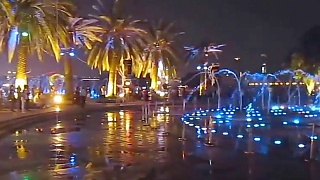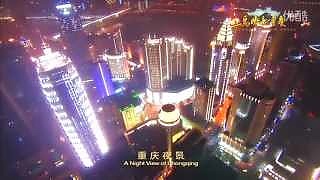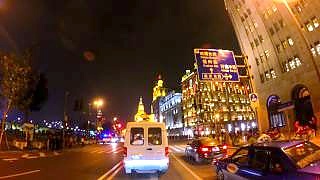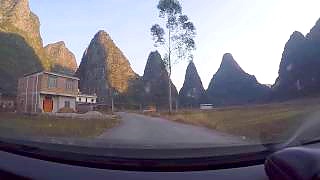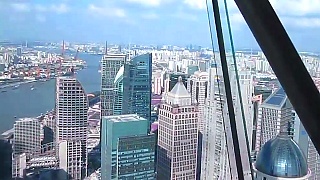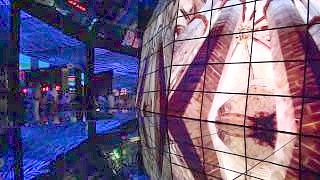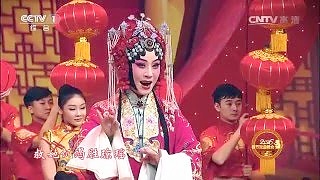
|
With Graeme Langford ...
Ancient Silk Road Travel Guide
Introduction
The ancient Silk Road was a network of trade routes connecting the East and West, stretching from China to the Mediterranean Sea. It played a crucial role in cultural, commercial, and technological exchange between civilizations. This guide will help you explore the key destinations along the Silk Road, providing insights into historical sites, cultural experiences, and practical travel information.
Key Destinations
Xi'an, China (西安)
Xi'an, the starting point of the Silk Road, is home to the famous Terracotta Army and the ancient city walls. Don't miss the Big Wild Goose Pagoda and the bustling Muslim Quarter.
Dunhuang, China (敦煌)
Dunhuang is known for the Mogao Caves, a treasure trove of Buddhist art. The Singing Sand Dunes and Crescent Lake are also must-see attractions.
Kashgar, China (喀什)
Kashgar is a melting pot of cultures, with its lively Sunday Bazaar and the Id Kah Mosque. The ancient city is a gateway to the western regions of the Silk Road.
Bukhara, Uzbekistan (布哈拉)
Bukhara is a UNESCO World Heritage site with over 140 architectural monuments, including the Ark Fortress, Bolo Haouz Mosque, and Lyab-i Hauz complex.
Samarkand, Uzbekistan (撒马尔罕)
Samarkand is one of the oldest cities in Central Asia, known for its stunning Registan Square, Shah-i-Zinda necropolis, and Bibi-Khanym Mosque.
Merv, Turkmenistan (梅尔夫)
Merv was once one of the largest cities in the world. Today, it is an archaeological site with impressive ruins, including the Sultan Sanjar Mausoleum and the Great Kyz Kala fortress.
Tehran, Iran (德黑兰)
Tehran, the capital of Iran, offers a mix of modernity and tradition. Key sites include the Golestan Palace, National Museum of Iran, and the bustling Grand Bazaar.
Antioch, Turkey (安提阿)
Antioch, now called Antakya, was an important center of early Christianity. The Hatay Archaeology Museum and St. Peter's Cave Church are highlights.
Constantinople, Turkey (君士坦丁堡)
Now Istanbul, this city was the terminus of the Silk Road. Visit the Hagia Sophia, Topkapi Palace, and the bustling Grand Bazaar to experience its rich history.
Cultural Experiences
Traditional Markets: Explore the vibrant markets along the Silk Road, such as the Kashgar Sunday Bazaar and Istanbul's Grand Bazaar, for a taste of local commerce and culture.
Silk Weaving: Witness traditional silk weaving techniques in Xi'an, China, and Samarkand, Uzbekistan. These cities have been centers of silk production for centuries.
Cuisine: Sample diverse culinary traditions, from Chinese dumplings and Uzbek plov to Persian kebabs and Turkish delights. The Silk Road has left a rich gastronomic legacy.
Music and Dance: Enjoy traditional music and dance performances in various Silk Road cities. Each region has its unique cultural expressions, influenced by centuries of exchange.
Historical Tours: Take guided tours of ancient ruins, mosques, and palaces to learn about the history and significance of the Silk Road. Knowledgeable guides can provide valuable insights.
Practical Travel Information
Best Time to Visit: The best time to explore the Silk Road is during the spring (April to June) and autumn (September to November) when the weather is mild and comfortable.
Visas and Permits: Ensure you have the necessary visas and permits for each country along the Silk Road. Check with local embassies or consulates for up-to-date requirements.
Transportation: Travel options include flights, trains, buses, and private tours. The Silk Road is well-connected, but some remote areas may require special arrangements.
Accommodation: Accommodation ranges from luxury hotels to budget hostels and guesthouses. Booking in advance is recommended, especially during peak travel seasons.
Health and Safety: Stay informed about health and safety precautions in each region. Carry a basic first-aid kit, stay hydrated, and respect local customs and regulations.
Local Currency: Familiarize yourself with the local currencies and exchange rates. Carry some cash, but credit cards are also widely accepted in major cities.
Conclusion
The ancient Silk Road is a fascinating journey through history, culture, and breathtaking landscapes. From the bustling markets of Xi'an to the majestic ruins of Samarkand, each destination offers unique experiences and insights into the rich heritage of the Silk Road. Use this guide to plan your adventure and explore the wonders of this legendary trade route. Whether you're a history buff, a cultural enthusiast, or an intrepid traveler, the Silk Road promises an unforgettable journey.
History of the Silk Road
Introduction
The Silk Road was an ancient network of trade routes that connected the East and West, facilitating not only commerce but also cultural exchange between civilizations. This guide delves into the history of the Silk Road, focusing on the trade of silk, horses, and tea, the travels of Marco Polo, and how the Silk Road ultimately influenced sea exploration and colonization.
Trade on the Silk Road
Silk Trade
Silk, a luxurious fabric produced from the cocoon of the silkworm, was the most iconic commodity traded on the Silk Road. Originating in China during the Han Dynasty, silk quickly became a highly prized item in the West. Its light weight, ease of transport, and high value made it a staple of Silk Road commerce. The demand for silk spurred trade relations and cultural exchanges between the East and West, spreading Chinese inventions such as paper and gunpowder along the way.
Horses
Horses were another crucial trade item, especially prized by the Chinese for their military and agricultural utility. The Fergana horses, known for their strength and endurance, were particularly sought after. These horses, traded primarily with Central Asian tribes, significantly improved the cavalry capabilities of Chinese armies and facilitated the movement of goods along the Silk Road.
Tea Trade
Tea, originating from China, became a major export commodity during the Tang Dynasty. It was highly valued for its medicinal properties and became a popular beverage in Central Asia and beyond. The trade of tea along the Silk Road helped to establish cultural connections and the spread of tea culture to places such as Japan and the Middle East.
The Travels of Marco Polo
Marco Polo, the Venetian explorer, traveled the Silk Road in the 13th century. His journey began in 1271, when he accompanied his father and uncle on a voyage to Asia, eventually reaching the court of Kublai Khan, the Mongol ruler. Marco Polo spent 17 years in China, documenting his experiences in his book "The Travels of Marco Polo." His detailed accounts of the wealth, culture, and innovations of the East provided Europeans with one of the first comprehensive insights into Asian civilizations and spurred interest in exploration and trade.
Impact on Sea Exploration and Colonization
The Silk Road's decline in the 15th century, due in part to the rise of maritime trade routes, marked a shift in global commerce. European powers, motivated by the wealth and tales from the Silk Road, sought direct sea routes to Asia to bypass intermediaries and gain control over lucrative trade. This led to the Age of Exploration, during which explorers like Vasco da Gama and Christopher Columbus set out to discover new trade routes and lands.
Portugal and Spain were at the forefront of this maritime expansion. Vasco da Gama's successful voyage to India in 1498 opened up a direct sea route from Europe to Asia, leading to increased trade and the establishment of colonial empires. Columbus's voyages, sponsored by Spain, led to the discovery of the Americas in 1492, further expanding European influence and colonization efforts.
The maritime Silk Road, established by these explorers, connected Europe, Africa, and Asia, facilitating the exchange of goods, ideas, and cultures on an unprecedented scale. This era of sea exploration and colonization transformed global trade networks and laid the foundations for the modern world economy.
Conclusion
The Silk Road was more than just a trade route; it was a conduit for cultural, technological, and intellectual exchange that shaped the ancient world. From the trade of silk, horses, and tea to the travels of Marco Polo, the Silk Road's legacy is profound. Its influence on sea exploration and colonization further underscores its importance in global history. Exploring the history of the Silk Road offers a deeper understanding of the interconnectedness of human civilizations and the enduring impact of ancient trade routes.
|

 ChongQing 重庆 drive – day and night
ChongQing 重庆 drive – day and night




